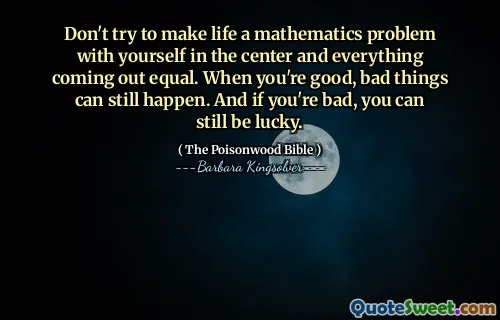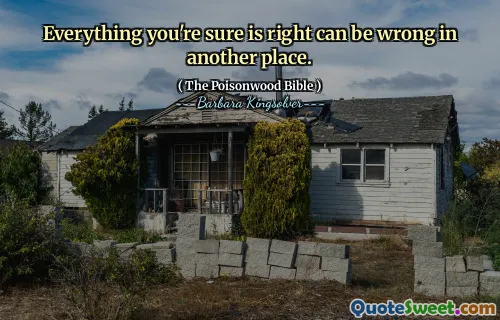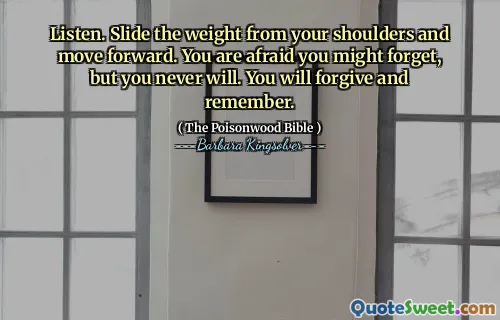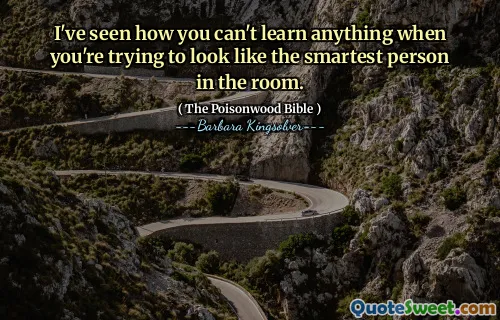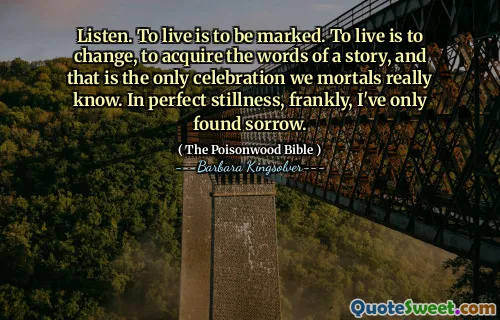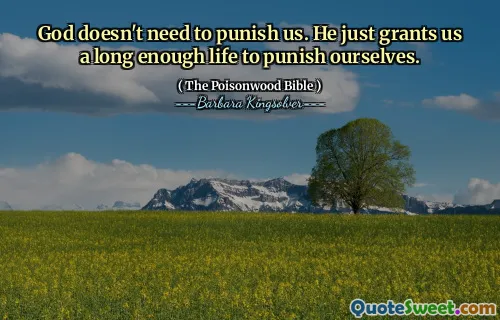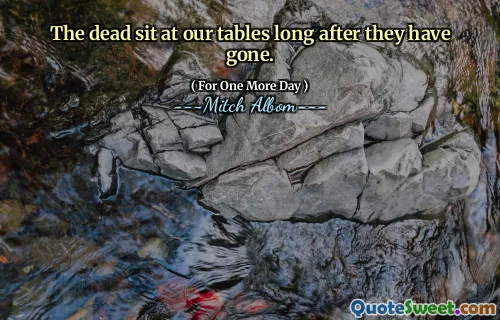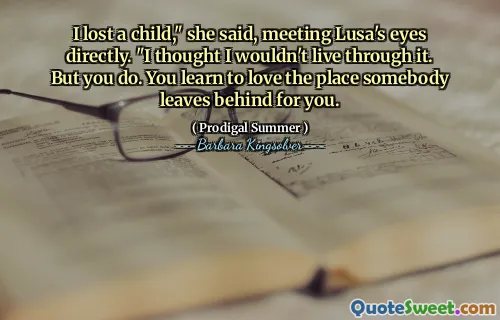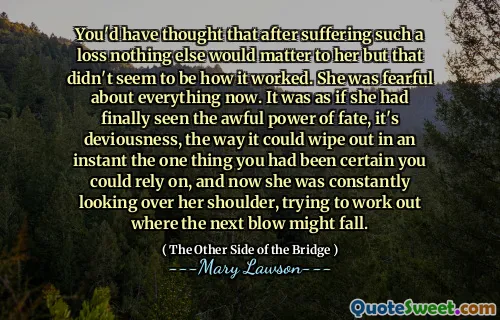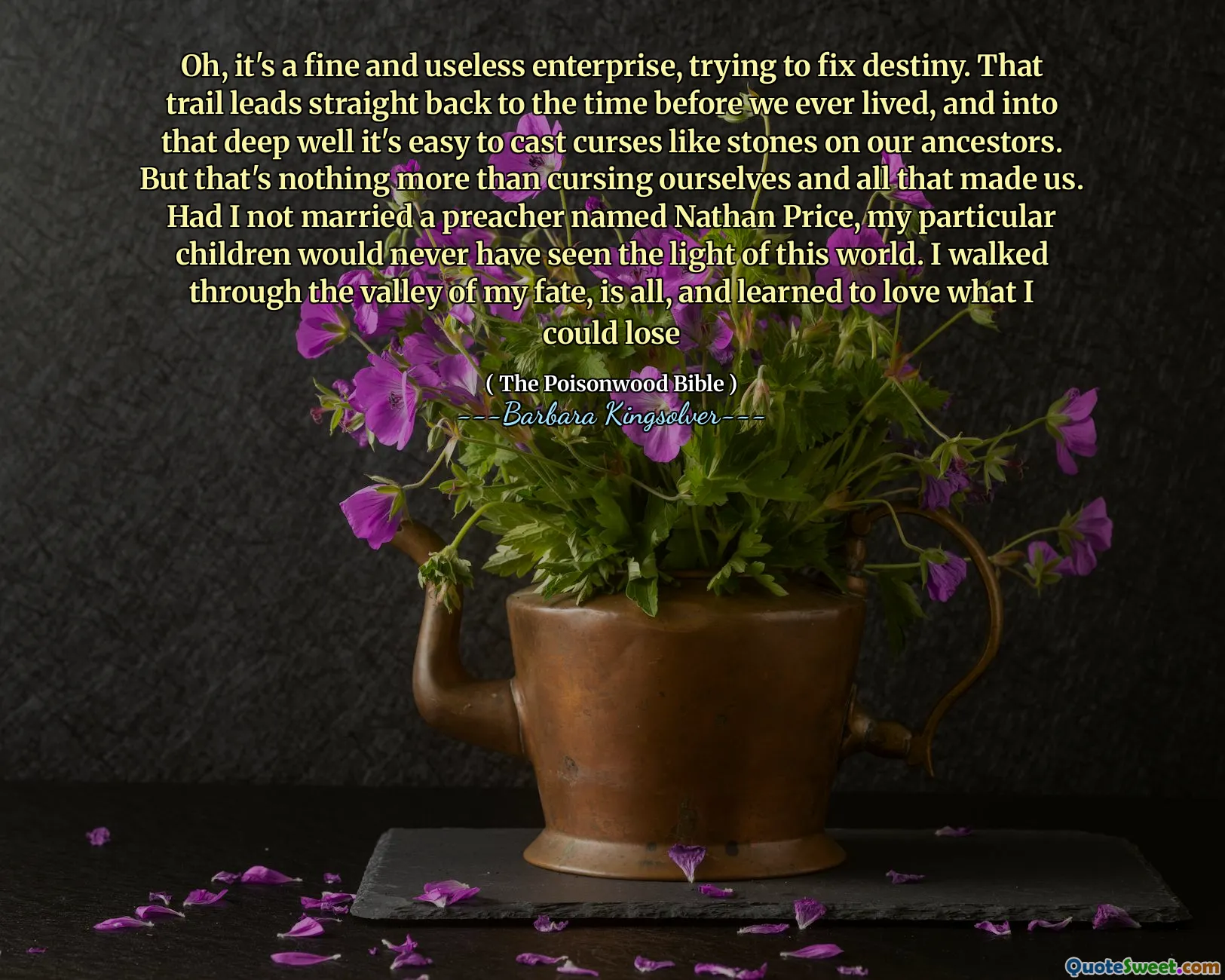
Oh, it's a fine and useless enterprise, trying to fix destiny. That trail leads straight back to the time before we ever lived, and into that deep well it's easy to cast curses like stones on our ancestors. But that's nothing more than cursing ourselves and all that made us. Had I not married a preacher named Nathan Price, my particular children would never have seen the light of this world. I walked through the valley of my fate, is all, and learned to love what I could lose
The quote reflects on the futility of attempting to alter one's destiny, suggesting that such efforts ultimately lead to a self-destructive obsession with the past. It highlights how casting blame on ancestors only serves to undermine the very fabric of one's existence. The speaker acknowledges the complexity of their lineage and the profound impact of their choices on future generations.
By marrying Nathan Price, the speaker recognizes that her children's existence is intertwined with the decisions she made, illustrating that acceptance of fate involves embracing both love and loss. Ultimately, this journey through personal history reveals a deeper understanding and appreciation of life's unpredictable nature.
